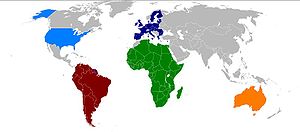My mother-in-law gave the NFO a copy of Battle Hymn of the Tiger Mother, but the NFO never got to read it.
I picked it up and read it first.
Then, as it turned out, I was invited to be the discussion leader for my synagogue’s roving book club about the book.
If you’ve read the book, chime in. If you haven’t, chime in, but at least say “I haven’t read the book, so I don’t have all the facts and am relying on the interpretation and lenses of others to make these comments.”
So, yes, Amy Chua is intense. She’s Type A and unapologetic about it.
I also felt bad for her husband, Jed. It just seems like with all of the focus that Amy had on raising her perfect Chinese daughters, combined with being an author and a Yale Law professor…I just wondered if, you know, he ever had sex with his wife?
(Sorry, but I did actually have that thought.)
Ok, now let’s move on to the meat of it.
Here’s what I admire about Amy and her approach.
- She instills a reverence for persistence, determination, and a work ethic. I love her for this.
- I am in awe of her never-ending source of energy. After a long day at work, I have had more than one occasion where I say, “I just need to get the kids to bed.” For her, the day just started and, as they say about some great football players, she “gets stronger in the 4th quarter.” I really admire that.
- I agree with her focus on discipline and accountability. Sooner or later, we all realize that life isn’t fair, that you have to deal with the fact that you screwed up, and that you are responsible for your actions. I’d rather have my kids learn that when they are in my house than on their own. It’s the difference between rock climbing with ropes and…without them.
- I also admire her as a marketer…She tells some great stories that get people riled up…and gets them to talk about her (and her book)…which leads to sales.
I think the biggest issue, for me, is how she determines what “success” is.
I get the fact that she wants the girls to have good grades and be the concertmaster, but to what end?
Is it to have a sense of accomplishment?
I doubt it, since you can get that in many ways.
I think (and I don’t know) that she thinks that this is the path to job security and wealth.
And that’s where I don’t agree with her…at least anymore.
20, 30, 40, 50 years ago? Sure.
You got a good degree and you were assured of, at least, a middle class lifestyle.
I don’t believe that’s true anymore as we move into the truly globalized economy.
What’s more, the piano and the violin seem to be (and getting good grades), succeeding within a system of rules and I think that innovation, being the driver, of the future economy/wealth is sometimes about creating your own rules (or at least, vision).
And, of course, there’s the question of “what’s the purpose/meaning of it all anyway?”
Am I a worse-off person because I had a friend sleepover (or vice versa) in 6th grade? Was that an unacceptable trade-off?
I was talking to the Rabbi of my synagogue about the book and one thing he mentioned that seemed ridiculous to him was the notion that there was no “day or rest” in her kids’ repertoire. The human body needs rest/recovery time.
In some respects, I felt bad for her.
She seemed to want to “be Chinese” so badly and felt guilty about being in America that she had to “out Chinese” the Chinese.
Call it China-envy?
Best part of it all is that when my kids are crossing the line now, I say, “you know, I can be the Tiger Mom, if you want.”
That scares them straight 










